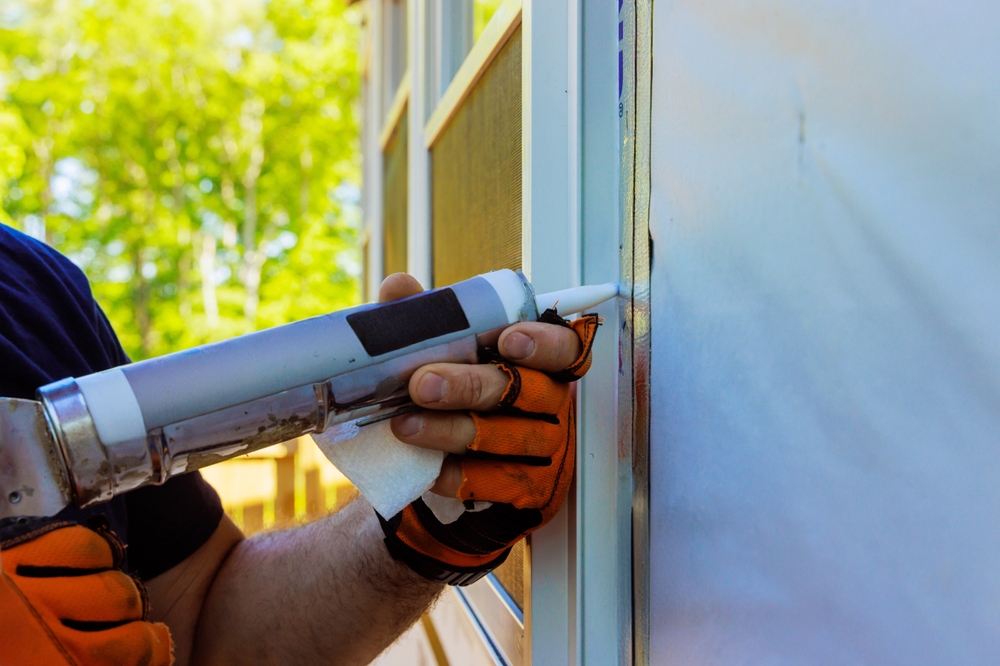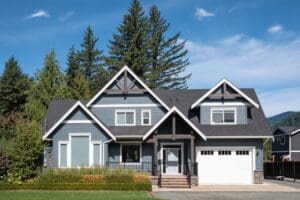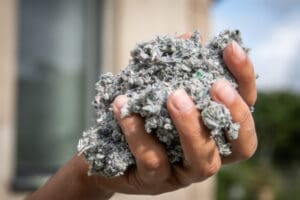
When those cold Wisconsin winters arrive, we all try to avoid turning up our thermostats for as long as possible. It doesn’t have to be a love/hate relationship with the thermostat, though. With the right winterizing home improvements, you can ensure that the temperature of your home will stay comfortable all winter long without the high energy bills.
Fall is the perfect time to start preparing your home for the colder months ahead. Here are some winter preparedness tips that will help you get your home ready to withstand winter’s frosty bite.
1. Keep the Gutters Clean
Knowing that your roof’s drainage system diverts thousands of gallons of water from your home’s exterior and foundation walls annually, it’s worth making sure that your gutters aren’t clogged up and are working optimally. No one likes having to spend extra, hard-earned money on repairing damaged exterior surfaces or a flooded basement. Before the leaves start to fall, make sure that your gutters are clear of dirt, debris, and other gutter clogging particles. Better yet, if you’re looking to never worry about your gutters again, consider having a clog-free system such as GutterShutter® installed.
2. Don’t Neglect Your Roof
There is nothing worse and more time-consuming than having to deal with a leaky roof. Carve out some time to see how your roof is holding up before the ice and winter winds turn from annoyances to disasters. Areas that should be examined include the ridge shingles, the valleys, around vents and chimneys, and any missing, damaged, or buckling shingles. Can’t or don’t like climbing a ladder? Give a professional a call for a free roof inspection.
3. Air Seal and Keep Your Insulation Fresh
Did you know that it’s possible to cut your heating bills in half by simply upgrading your home’s insulation and sealing any air leaks? There is a common misconception that the heating system is to blame for chilly rooms and the high energy bills. What if we told you that your heating system isn’t to blame, and the main culprit is actually from air leaks and insufficient insulation? When there are holes, cracks, or other openings in your home, this allows all of the warm air to leak right out and the cold air to seep in. This process forces your heating system to work overtime, and your insulation will fail to be useful.
To winterize your home, we recommend air sealing first and making this your top priority, before even considering insulation. The problem with insulating before air sealing is that it will be far more challenging to go back and find the sources of air leakage and then trying to seal them. Insulating without air sealing is a waste of resources and won’t address the true problems within the home. Insulating without air sealing is also considered malpractice.
Attics are the number one culprit in terms of air leakage and the need for air sealing because the gaps and leaks can be small. Additionally, leaks coming through wires, pipes, and chimneys may seem like small news, but when added together can often equal the size of a window. No homeowner on the planet would leave a window open all winter with the heat on (or during the summer with the air conditioner running). Air sealing can solve these air leakage problems and make the home much more comfortable and energy efficient. A home energy audit can provide you with a detailed analysis of where your home may be leaking air.
Some other common places that need air sealing include:
- Around pipes and wires
- Around chimney passes
- Duct chases
- Between framing and drywall at the top of walls
- Can lights
- Pull down stairs and scuttle holes
- Rim joists and sill plates
- Sump pump holes
- Basement windows
- Windows and doors
- Under sinks (plumbing penetrations)
- Bath fans
- Whole house fans
- And many, many other places!
After sealing all of the air leaks, it’s time for insulation. We know that heat rises; therefore, a poorly insulated attic will allow heat to escape out of your attic all too easily. Upgrading your insulation is an excellent idea if you want to keep your energy bill low and your home at a consistent temperature. We offer a variety of different types of insulation for the crawl space, basement, walls, and more.
Fix Air Leaks Before Winter Sets In
Not sure which type is best for your home? It’s best to set up a free estimate with a professional to see what they would recommend. Dr. Energy Saver by GutterShutter of northeast Wisconsin specializes in diagnosing and correcting air leakage problems, as well as many others dealing with home comfort and energy efficiency. One of our Dr. Energy Saver experts will be able to locate any critical areas of energy loss with a home energy audit. Contact us today for a free estimate.



